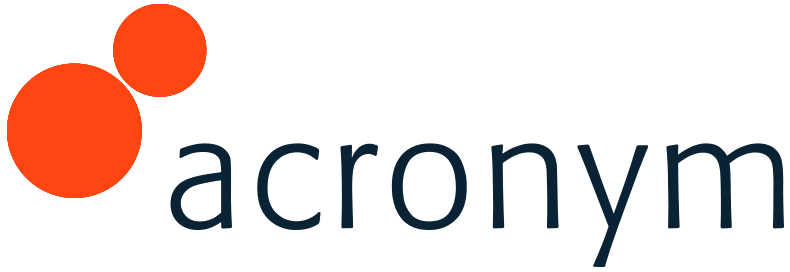By Winston Burton
 In the SEO industry, we always focus on 800-pound gorilla Google because of its dominantmarket share yet we rarely focus much attention on Bing. Bing owns 27.5% of Search Engine Market Share, so it should not be an afterthought, especially since some brands have reported achieving better conversion rates in Bing as opposed to Google and Bing has been busy integrating search into some Microsoft products. Both Microsoft and Yahoo recently updated the terms of theirpartnership, a development that could change things in the future if either party decides to back out of the deal. This is something we need to keep on our radar screens.
In the SEO industry, we always focus on 800-pound gorilla Google because of its dominantmarket share yet we rarely focus much attention on Bing. Bing owns 27.5% of Search Engine Market Share, so it should not be an afterthought, especially since some brands have reported achieving better conversion rates in Bing as opposed to Google and Bing has been busy integrating search into some Microsoft products. Both Microsoft and Yahoo recently updated the terms of theirpartnership, a development that could change things in the future if either party decides to back out of the deal. This is something we need to keep on our radar screens.
Since either Yahoo or Bing can terminate the search agreement after Oct. 1, 2015, this could potentially cause Yahoo to go independent and recreate its search and paid-search infrastructure over the next several years. From a SEO perspective, technically Google could power Yahoo’s search results as long as those results remain 49% of the overall share — ensuring that Microsoft / Bing get 51% however this is highly unlikely. Maybe Yahoo will introduce another partner or perhaps revamp the search offering.
The million dollar question is, if I am optimized for Google, I am I optimized for Bing? The answer is yes because the two search engine giants are extremely similar and seek the same elements to increase search engine visibility.
Google is famous for announcing algorithm updates and Bing has its own. Further, Bing is not interested in thin content and advertising above the fold, according to Duane Forrester, the company’s Senior Product Manager.
However, there are some differences, as noted in a recent discussion between my colleague Mike Grehan and Forrester that can be found here. Microsoft tends not to do large rollouts like those that we see with Google. “We tend to bake things into the algorithm and do a very long-term period of testing before we understand what is going to be affected,” says Forrester. We will continually refine until we get to a point where when we roll it out, only those who should be affected are affected”
One of the biggest items that Bing looks for is to know the history of your domain. If your domain has historically been associated with spam, it could be difficult to recover from having a a negative image unless you change the site’s perception from spam-inclined to a website that offers valuable content and meets the needs of end users.
Bing, in addition to Google, loves to new content. In fact, Forrester recommends submitting an RSS feed in the sitemap to make sure that your most current content is what Bing sees as soon as you publish it.
Mobile is extremely important for both engines because that is the way that consumers are consuming increasing amounts of content.
Based on different studies from SearchMetrics and our own personal testing at Acronym, Bing does prefer shorter URLs and social signals have a higher impact on organic visibility than in Google.
Earlier this month and following a similar move by Google, Bing outlined its approach to mobile-friendly search. Without getting to deeply into the weeds (you can read Bing’s explanation here) the company is also rolling out mobile friendliness as a signal in ranking. It’s worth pointing out that Bing now tags qualified search results as “Mobile-friendly” so that users can see which of the results might satisfy their information needs the fastest. The company reports “great feedback” from user interaction, so we are beyond the point where companies can ignore the negative effects of not having web pages tailored to today’s increasingly mobile search user community.
In order to succeed with Bing, concentrate on the end user, i.e. the person visiting your website, in addition to focusing on quality, relevancy and promoting a good user experience. With Microsoft increasing integration into Voice, Text search on Xbox, Windows integration, Windows 10, the new “Spartan browser” and aggressively pursuing partnerships, Bing’s market share can increase in the near future, so SEOs should focus on SEO best practices for social, mobile, content, strong technical architecture and links to be successful in both Bing and Google.
 Winston joined Acronym in 2014 with over ten years in search marketing. Prior to joining Acronym, Winston was the VP of SEO at Havas Media, one of the world’s top ten global ad agencies. He started the SEO practice for Havas and built the practice to include Clients such as Choice Hotels, Fidelity, Exxon, Volvo and Marc Jacobs to name a few. Winston spearheaded SEO strategy including content marketing, mobile, link building, and all technical areas of SEO. Winston’s career also included the SEO Manager role at Rosetta and time at Zeta Interactive.
Winston joined Acronym in 2014 with over ten years in search marketing. Prior to joining Acronym, Winston was the VP of SEO at Havas Media, one of the world’s top ten global ad agencies. He started the SEO practice for Havas and built the practice to include Clients such as Choice Hotels, Fidelity, Exxon, Volvo and Marc Jacobs to name a few. Winston spearheaded SEO strategy including content marketing, mobile, link building, and all technical areas of SEO. Winston’s career also included the SEO Manager role at Rosetta and time at Zeta Interactive.








